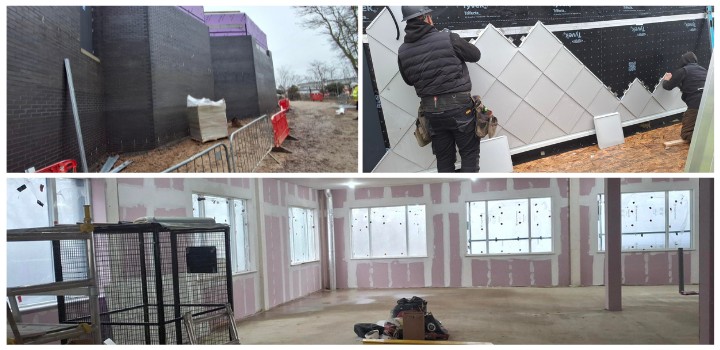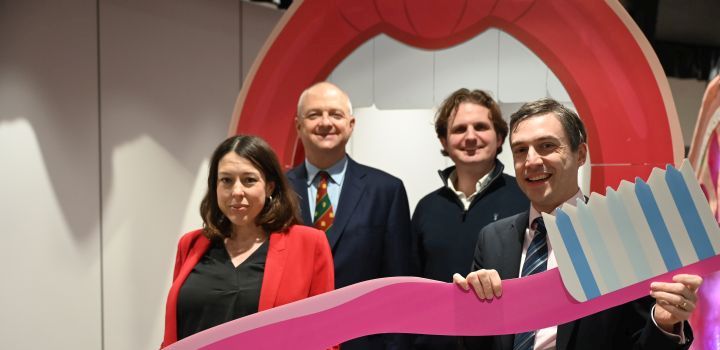New Graduate Entry Medical course welcomed by health sector leaders
By: Communications

Health sector leaders have welcomed an innovative accelerated Medicine course run by the UEA to train more qualified doctors and progress them into jobs across the East of England.
UEA's new Graduate Entry Medical course will begin training students from September 2025.
Bringing graduates in from a range of disciplines, the new four-year course is one year shorter than a standard medical degree course without compromising on quality. It is now open for applications.
UEA Vice-Chancellor Prof David Maguire said: “This innovative four-year course will help to secure the future workforce for our NHS services. The course will give newly qualified doctors the skills and knowledge they need to tackle health inequalities across our region, particularly those associated with rural and coastal communities.”
The Graduate Entry Medical course will be held in the University’s Norwich Medical School, with medical students on the course based at Norwich Research Park and given unique access to the state-of-the-art facilities at the James Paget University Hospital, the Queen Elizabeth Hospital King's Lynn NHS Foundation Trust and the Norfolk and Norwich University Hospital (NNUH).
The students will also benefit from the immersive teaching spaces, improved preparation areas, and high-tech teaching facilities in the new Anatomy Suite, which is set to become operational during 2026.
Jo Segasby, Chief Executive, James Paget University Hospital said: “The James Paget has a strong track record in working with education partners to develop different routes into healthcare, so that people from our community are given the chance to train and work at their local hospital.
“The introduction of the Graduate Entry Medical Course continues that work, providing a unique opportunity for local graduates to undergo training locally and then consider developing their career within the Norfolk and Waveney healthcare system.
“We are proud of our strong links with UEA which have been essential in helping us develop our workforce over the years. The introduction of this latest course will help build on this strong partnership, for the benefit of both our patients and our organisation.”
Dr Rebecca Martin, Medical Director from The Queen Elizabeth Hospital Kings Lynn Foundation NHS Trust said: “This is great news for our region in providing another route into medicine from next September. I welcome this important initiative which will support bringing more doctors to Norfolk and the surrounding area.”
Dr Bernard Brett, Norfolk and Norwich University Hospital Interim Medical Director, said: “This is great news for the region, which is providing another important route into medicine where students will be able to train at the excellent facilities here at our hospital and the UEA from next September. Norfolk is an incredible place to study and work and this partnership will help to develop our future homegrown medical workforce.”
UEA also continues to push for the establishment of a dental school to serve the region.
East Anglia is the only region of England that does not have a dental school and consequently struggles to recruit and retain dentists, making the region the most underserved area in the UK for dental care. According to recent data from the Local Government Association, Norfolk and Waveney has one of the lowest numbers of dentists per 10,000 people in the country.
UEA continues to make the case for undergraduate dental training in the East of England. We are advancing discussions with the General Dental Council and the Office for Students and continue to work relentlessly with our regional partners on dental development activities, including post graduate training to tackle the oral health crisis in Norfolk and continue to be an important provider of health skills for our region.”
Related Articles

UEA’s new high‑tech anatomy suite on schedule to open to students in September 2026
The University of East Anglia’s new high‑tech anatomy suite is on track to open to students in September 2026.
Read more
Norfolk MPs call on Government to urgently prioritise ‘underserved’ dental areas
A group of Norfolk MPs, all representing different political parties, have come together to call unanimously for the Government to prioritise the East of England in dental training.
Read more
UEA launches study after supplement shows promise in professional racing drivers
Researchers at the University of East Anglia (UEA) are launching a new study to see whether American ginseng extract could boost brain health.
Read more